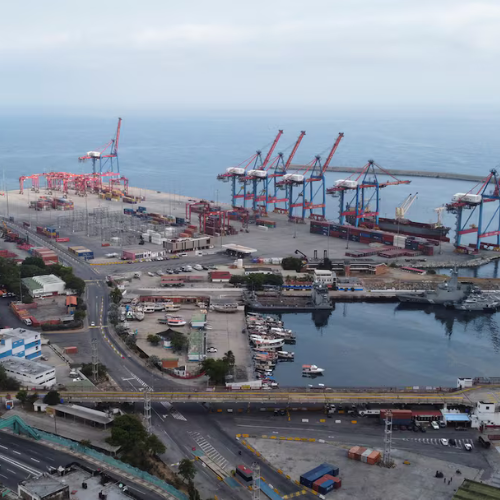The United States has recently taken firm action by arresting a 37-year-old Turkish man, accusing him of attempting to illegally transport Venezuelan oil. U.S. authorities claim he tried to bypass strict sanctions that restrict trade involving oil from Venezuela, which is produced by the state-owned oil company, Petróleos de Venezuela, S.A. (PDVSA).
According to the U.S. Justice Department, the man allegedly used deceptive methods to disguise the true origin of the Venezuelan oil. Techniques reportedly included renaming and reflagging tankers and even turning off tracking devices on the ships to avoid detection. This arrest is a part of the U.S. government’s ongoing campaign to enforce sanctions on Venezuela and prevent any illegal trading of Venezuelan oil.
Why Are There Sanctions on Venezuelan Oil?
Venezuela, once a prosperous oil-producing nation, is under strict U.S. sanctions that heavily impact its oil exports. Sanctions are restrictions that one country imposes on another, often to press for political changes. In Venezuela’s case, the U.S. wants to put pressure on President Nicolás Maduro’s government to negotiate political terms with opposition leaders and commit to free and fair elections.
The U.S. reimposed sanctions on PDVSA, the state-controlled producer of oil, in June after accusing Maduro of blocking meaningful talks with opposition leaders. These sanctions target Venezuela’s vital oil exports, a major source of revenue for the country. Limiting the sale of Venezuelan oil is one way the U.S. aims to restrict funding to Maduro’s administration.
According to officials, the arrested man allegedly engaged in a plan to move Venezuelan oil around sanctions in exchange for significant financial rewards.
Alleged Deception in Transporting Venezuelan Oil
The Justice Department provided further details on the tactics allegedly used to hide the Venezuelan oil’s origin. It was revealed that the man and his associates were involved in renaming and reflagging oil tankers to disguise their point of departure. Changing a ship’s name and flag, or registration country, can make it challenging for authorities to track the journey and original source of the Venezuelan oil. This tactic is often used to make it appear that the oil is from a non-sanctioned country.
Dark Fleet’s Dangerous Rise: Russian Oil Sanctions Evasion Leads to Oil Trade Rise
U.S. authorities also claim that those involved would disable the tankers’ Automatic Identification System (AIS), a tracking technology that transmits the ship’s location. Disabling AIS is a tactic used to operate “off-radar,” making it difficult for authorities to monitor the tankers’ movements. This method is illegal in many regions, but some rely on it to conceal the location and origin of Venezuelan oil shipments.
The man and his associates were allegedly paid millions of dollars for participating in these covert operations, which allowed Venezuela’s PDVSA to continue moving Venezuelan oil in violation of U.S. sanctions.
Venezuela’s Secretive Oil Shipping Tactics
Reports indicate that Venezuela has been using various methods to export oil in spite of the sanctions. “Dark shipping” is one such method, where tankers switch off their tracking systems to hide their movements. PDVSA and other sanctioned fleets also sometimes transfer Venezuelan oil between ships in the middle of the ocean, making it even more difficult to trace.
Cuban ships, which are also under U.S. sanctions, are reportedly involved in this process to assist Venezuela with oil shipments. With this arrest, U.S. authorities are emphasizing the consequences of breaking the sanctions. The alleged actions to reflag tankers, hide the origin of the oil, and evade detection highlight the lengths to which some may go to continue trading Venezuelan oil.
The Turkish man was apprehended in Miami, Florida, just as he was preparing to fly back to Turkey. His arrest shows that the U.S. has been actively monitoring the movements of Venezuelan oil shipments and tracking individuals who may be attempting to bypass the restrictions.
Due to sanctions, many tankers linked to Venezuela and Cuba face heavy limitations on travel and trade, restricting the income Venezuela can gain from selling its oil. The U.S. government sees controlling the trade of Venezuelan oil as a way to weaken the Venezuelan government’s economic power while pushing for democratic reforms within the country.


